Reclaiming Your Identity: Leading Authentically in a World That Asks You to Shrink
Keisha Mohammed
6/2/20252 min read


We’ve been shaping our identities since childhood.
Who we are at our core—the way we think, feel, respond, speak, and act—isn’t something we just stumbled upon. It’s been forming over time, rooted in our upbringing, environment, and the values we’ve grown into. For many of us, that personal identity feels familiar and true. We know it through and through. We’ve built a relationship with ourselves, and at best, we’ve built it on self-respect and love.
When I entered the corporate world, I came in fully as myself—my personal identity intact.
I had always been outspoken, even as a kid. If something didn’t align with my values, I would speak up. I never accepted “that’s just how things are” as a real answer. I wanted to understand, and if something didn’t make sense or sit right with me, I challenged it.
But in the workplace, that part of me was questioned. I quickly realized that who I was—how I spoke, how I expressed myself, what I cared about—wasn’t fully accepted. There were expectations around professionalism that didn’t feel like there was room for authenticity. So I started to adjust.
I paid close attention to what was considered “professional”—based on what I read in leadership books, and the coaching I received about how to show up. I started modelling a version of myself that would feel more acceptable. More polished. More corporate.
But here’s the hard truth:
When we start doing that—when we try to fit into someone else’s mold—we miss the chance to lead in a way that’s uniquely our own.
At first, I played along. But over time, all of the arbitrary rules being fed to me began to take a toll, and didn't feel right anymore. Rules that didn’t make sense. Rules that didn’t serve the team or the work. Rules that made people shrink.
I was lucky enough to have a manager I could be honest with. He never made me feel judged. He saw me. He heard me. And he made me feel like I didn’t have to translate who I was. I could lead with honesty and still be effective.
Eventually, I left that job and moved to a new city. I told myself, Maybe that was just one workplace. Maybe things will be different now. After the pandemic, it seemed like organizations were starting to prioritize people more. Words like authenticity, mental health, and inclusion were everywhere.
But the truth? It was still the same story.
Come as you are—with conditions.
Then that realization hit harder when I became a parent.
Watching my toddler’s personality take shape has been one of the most beautiful things I’ve ever witnessed. She’s already developing her sense of self—bold, expressive, curious, and unfiltered. And all I want is for her to hold on to that. To embrace herself. To live with integrity. To speak her truth. And most importantly, respect others for doing the same.
But if I’m telling her to be herself while I’m over here editing parts of myself just to feel accepted, what message am I really sending?
That’s the conflict so many of us—especially parents—are facing right now. And that’s why this conversation matters.
We need to shift the narrative, not just for ourselves, but for the generation coming after us.
And that shift begins with how we lead.
It’s not about being louder or tougher.
It’s about building from your foundation—your values, your voice, your experiences—and leading from that place.
That’s what Build From You is all about.


